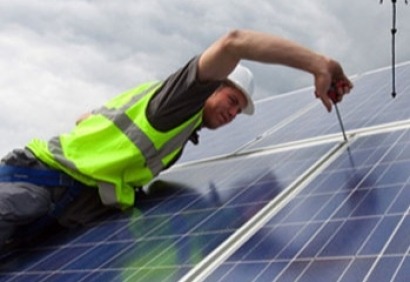
The coalition Government has announced that it is seeking permission to appeal in the Supreme Court the Judicial Review ruling that it acted unlawfully in trying to make retrospective changes to the feed-in tariffs (FIT) for solar photovoltaics. According to HomeSun, the UK’s leading free-solar company, the decision means “a scandalous waste of taxpayers’ money”.
“We are hugely disappointed that Ed Davey is choosing to pursue an expensive lost cause rather than working with the industry to build a successful future for solar,” says Daniel Green, CEO of HomeSun. “Four Judges, one at Judicial Review and three in The Court of Appeal, ruled that the Government had acted unlawfully in setting a retrospective ‘reference’ date for the FITs cut. We wonder why Ed Davey wants to be a loser. He wasn’t the orchestrator of the feed-in tariff fiasco so why does he want it on his CV?”
If the Department for Energy and Climate Change (DECC) loses again, in addition to DECC’s cost of these legal challenges, there will also be significant six figure costs to be paid to the other parties by the public.
“There is no need to appeal to the Supreme Court. DECC has already achieved its objective of a solar-slowdown. Figures out on the DECC website show that there has been a 90 per cent reduction in solar PV installations and capacity over the last nine weeks compared to the nine weeks prior to 12tDecember 2011,” added Green. “This has now become just a face-saving exercise for DECC paid for by the taxpayer.”
HomeSun has also refuted Greg Barker’s claims that DECC was forced to seek permission to appeal the unlawful FIT review ruling in the Supreme Court so that energy bill payers could be protected from an additional £1.5 billion in costs.
“Greg Barker’s claim that installations completed between the 12 December 2011 and 3 March 2012 would cost £1.5billion if the FIT was at 43.3p is completely unfounded. Our own analysis based on the lasted figures posted on DECC’s website today show that the burden on domestic energy bill payers is going to be only around 50p per household per year. This is a small price to pay for a successful solar industry that was employing over 25,000 people and generating revenues in excess of £270m per year from tax and VAT to the Treasury,” said Green.
For additional information:

